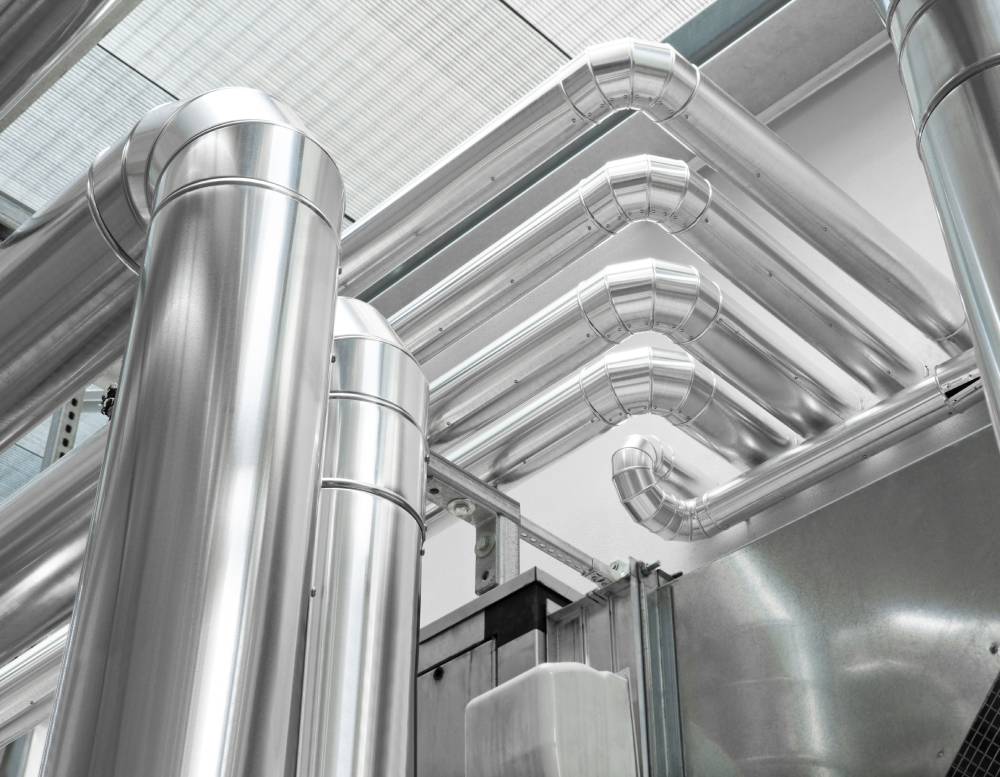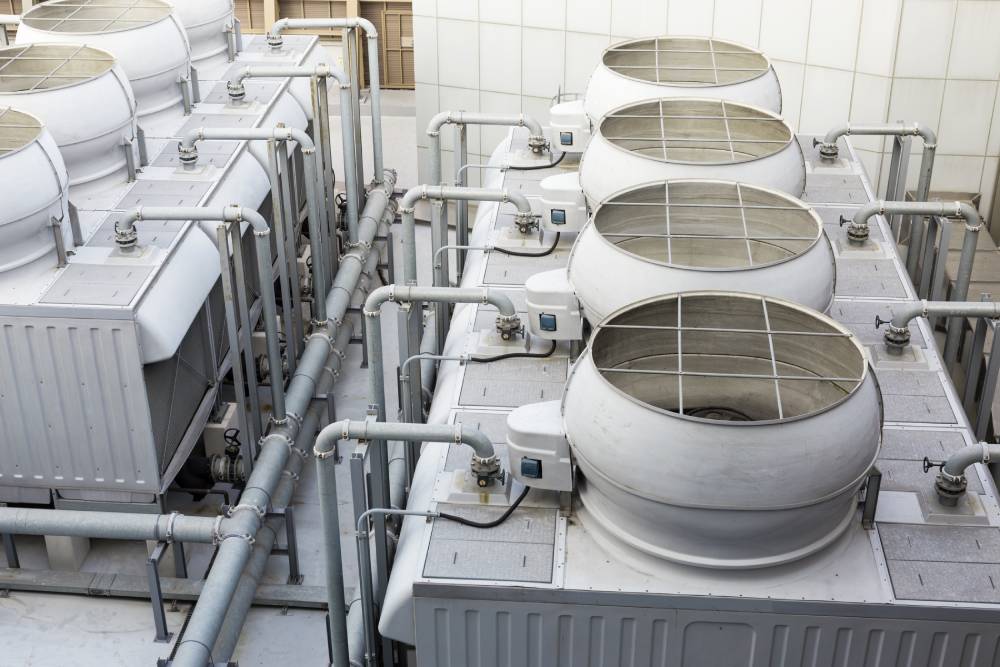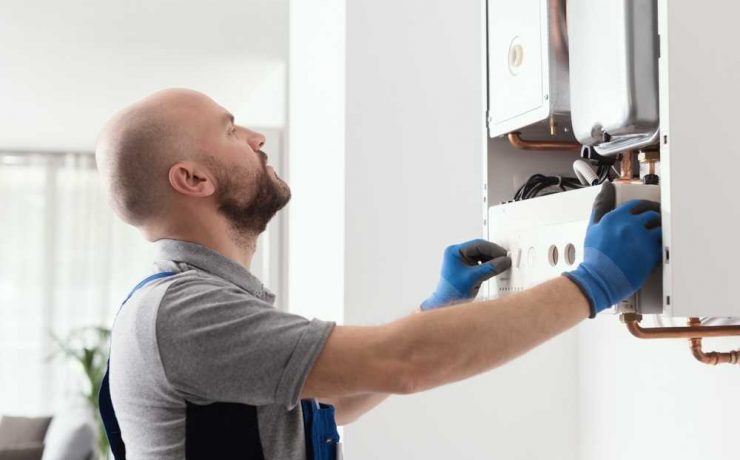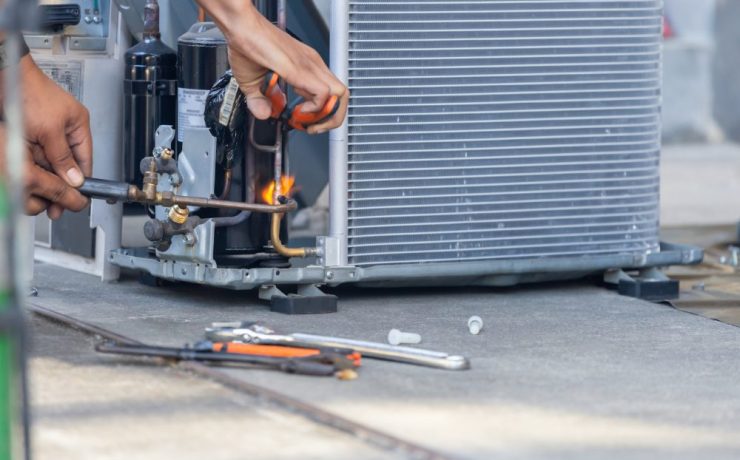
Is F-Gas Certification Worth It for Gas Safe Engineers?
F-Gases or ‘fluorinated gases’ are a selection of potent and man-made greenhouse gases that contain…
Become certified with F-gas training courses, complete with two to three weeks of in-house training from an expert instructor with MGE Training. Book your place today by calling 0121 557 7009 to start your journey in getting your recognised F-gas qualification.
Our F-gas course is separated into two distinct categories: Cat 1 and Cat 2.
The F-gas Cat 1 course is a level three Regulated Qualifications Framework (RQF) qualification awarded by LCL. The Cat 1 F-gas course is ideal for experienced engineers looking to become qualified to work on all refrigeration, air conditioning and heat pump equipment containing fluorinated greenhouse gases.
The F-gas Cat 2 course is also a level three RQF qualification for experienced engineers looking to work with the same applications containing less than 3kg of fluorinated gases.

Suited to:
Once completed, candidates can:
Course length:
Suited to:
Once completed, candidates can:
Course length:
If you’re looking for an ‘F-gas course near me’, there are some entry requirements to consider. Both Cat 1 and Cat 2 courses require attendees to have experience working with HVAC and refrigeration systems.
To take the Cat 2 training course – candidates must have recognised qualifications or two years of auditable experience in the refrigeration, heating and ventilation industry.
Applicants for the Cat 1 course are advised to complete Cat 2 first and have a good deal of knowledge in relevant sectors.

Both Cat 1 and Cat 2 F-gas training courses are assessed using a blend of a multiple-choice exam and a practical assessment. This is designed to test a candidate’s theoretical understanding as well as practical ability.
Candidates need to be able to demonstrate they can work safely and competently in accordance with relevant industry legislation.
As part of your training and F-gas qualification, we structure it around a list of specific learning outcomes, including:
To get started, just reserve your place on our next F-gas course today. Book by calling our friendly team on 0121 557 7009, emailing enquiries@mgetraining.co.uk or filling out our contact form.
The term ‘F-gas’ is an abbreviation for ‘fluorinated gases. These are manmade gases created by blending various chemicals. F-gases are used in a range of applications, including heating and cooling, as well as fire extinguishers and other aerosols. These gases are harmful to the ozone layer if released, so special F-gas courses are required to ensure safe practices when working with F-gas equipment.
There are three main types of F-gas, all covered in our training:
The most common are HFCs, which contain hydrogen, fluorine and carbon.
Our F-gas training courses are suited to those looking to work in the heating and cooling industry, specifically with applications containing manmade fluorinated gases. Cat 1 and Cat 2 courses are tailored for different experience levels, with Cat 1 being better suited to those with more experience, and Cat 2 serving as a stepping course for Cat applicants.
The LCL RQF F-gas courses we provide at MGE Training will need to be renewed once every five years to ensure candidates are up to date with evolving legislation and practices.
Once you receive your F-gas qualification, you’ll be able to work on heating, air conditioning and refrigeration systems containing fluorinated gases. Completing the Cat 1 course means you can work with systems of any size, while the Cat 2 course is limited to systems containing no more than 3kg of F-gases.
There is no recommended reading before starting an F-gas training course. However, educating yourself on the latest legislation and practices could prove beneficial.
Certainly. These F-gas courses provide attendees with information that could enable them to find their own businesses, working in the installation, servicing and repair of heating, air conditioning and refrigeration systems containing F-gases.

F-Gases or ‘fluorinated gases’ are a selection of potent and man-made greenhouse gases that contain…

Gas engineers are in high demand across the UK, and entering this trade can lead…

Before looking into what is an F-Gas certificate? It will be beneficial to understand what…

What is an F-gas? An F-gas is short for fluorinated gases, which are synthetic gases…